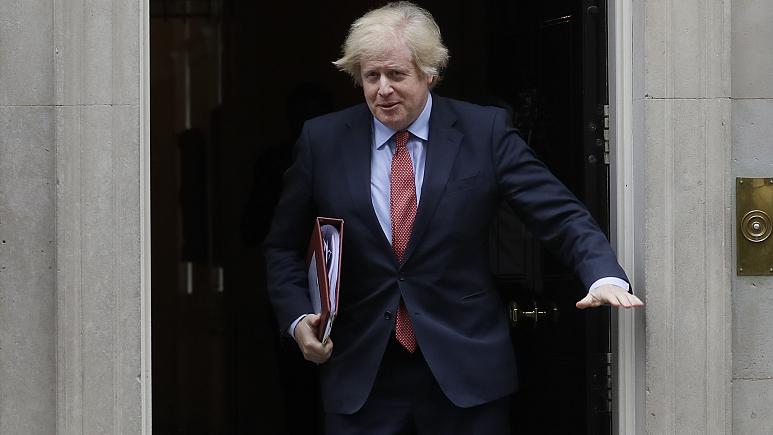English lockdown only partially eased because COVID-19 infection rate isn’t dropping quickly enough

Boris Johnson has confirmed only a partial further easing of the lockdown in England from next Monday, saying restrictions must remain in place as the coronavirus infection rate remains too high.
Speaking at the UK government’s daily COVID-19 briefing, the UK prime minister said that all shops would be able to reopen having been closed for 82 days, as long as they respected conditions such as on social distancing.
[contfnewc]
[contfnewc]
The restrictions on social contact will not be lifted, regarding how many people can meet. However, adults living alone, and single parents with children under 18, will be able to form “support bubbles” with one other household, to ease loneliness.
Johnson also confirmed that outdoor attractions such as zoos, safari parks and drive-in cinemas would be able to open.
He acknowledged that the changes were only incremental as there was a need to remain cautious. Progress in combatting the virus was “moving slower” than had been hoped for, as the rate of infection was coming down “slower than we wanted”.
The prime minister also confirmed that all primary schools in England would not be opening this month, as had been hoped, with many not returning until September.
[contfnewc]
COVID-19 death toll ‘could have been halved’
Boris Johnson defended the government’s record in the face of accusations that the lockdown announced on March 23 was implemented too late, resulting in the loss of thousands of lives.
A scientist whose modeling helped set Britains coronavirus strategy said on Wednesday that the countrys death toll in the pandemic could have been cut in half if lockdown had been introduced a week earlier.
Neil Ferguson, professor of mathematical biology at Imperial College London, told a parliamentary committee that when key decisions were being made in March, scientists underestimated how widely the virus had spread in the U.K.
He said that “the epidemic was doubling every three to four days before lockdown interventions were introduced,” rather than the five to six days estimated at the time.
“Had we introduced lockdown measures a week earlier, we would have reduced the final death toll by at least a half,” Ferguson added.
Boris Johnson was challenged in Parliament on Wednesday over the UK’s record in tackling the pandemic.
Opposition Labour leader Sir Keir Starmer cited figures for UK coronavirus deaths, saying they were among the highest anywhere in the world and “haunt us”. The official government tally is more than 40,000 deaths, the Office for National Statistics (ONS) puts it at over 50,000, and the number of “excess deaths” compared to the average for the same time of year is 63,000.
Johnson said every loss of life was mourned, but the “best scientific advice” was to wait for the epidemic to complete its whole cycle before making international comparisons.
The changes announced by the prime minister cover only England as the UK’s devolved nations — Scotland, Wales and Northern Ireland — are making their own decisions governing lockdown.
Read from source [contfnewc]
[contfnewc]
[contfnewc]
[contfnewc]


